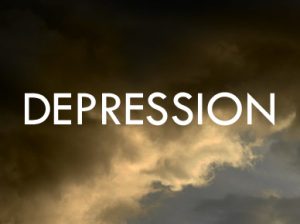Forcing Solutions?

I will never forget where I was sitting the first time I heard the following quote: “Our thinking becomes distorted by trying to force solutions, and we become irritable and unreasonable without knowing it.”
I had rushed into a support meeting after a day of “forcing solutions.” I had crammed four errands into an hour, the one hour I had between counseling and picking my child up from school. I had not asked for help with so many tasks that day, when people would have gladly helped. I had followed the car in front of me much too closely all the way to my meeting, convinced that my road righteousness would push them, and get me there on time. Finally, here I was. My hour of support and encouragement, trying my best to settle into my chair, to be open to others’ words.
When this statement was read to us, I felt as if someone was coming to find me in the dark, with a flashlight, and a promise to help get me to the light. Fear always convinces us to deny our real capacity. It lies to us. It pushes us to get busy and produce in some areas, and lulls us into paralysis in others, by suggesting that avoidance will keep us safe. “Push forward!” it speaks to us, “only a fool would stop now, and you cannot afford to not know what’s ahead.” In the next hour, it may also say “You can’t cope with that! Don’t do anything about that; it’s too risky.”
Fear, the voice of the enemy, pulls us into denial. Deny your limits and keep pushing, or deny your ability to suffer well and get through. Either direction and we become compulsive, irritable, controlling, or avoidant. This voice pulls us into denial, yet masquerades as wisdom.
What does your brand of “unmanageability” look like these days?
Forcing Solutions:
- When you run into frustration during daily adulting, do you try to force a solution? Do you “work smarter” out of urgency or frustration? Do you have negative, victim thinking about the common thwarting and disappointment of the day, and allow that to fuel aggressive energy?
- Are you suspicious of motives in people you love? Do you mind-read, manage, and check up on them? Are you overly involved in “helping” people do things they could do themselves?
- Do you see a gap and rush to fill it with your gifting?
- Do you use adrenaline to cope and get tasks done? Do you compulsively buckle down to manage people or tasks?
Avoiding Solutions:
- Do you avoid until the last minute- the bank account, tax bill, your child’s growing anxiety, the dental check-up, until the problem is screaming at you?
- Do you process life through a cynical lens, and interpret the brokenness around you as personal, threatening or never-ending? Do you allow this to fuel self-pity and self-protection?
- Do you gear up for hard conversations by imagining resistance from the other person over and over, only to be tired and reactive by the time you actually have the conversation?
If any of the above feel familiar, what does a “sound mind” look like for you? Admitting our insanity is only safely done in the presence of someone who is moved toward us in our suffering and can move on our behalf. Reducing unmanageability begins by turning to the Source of wisdom, who has our lives and this world securely in hand.
When we try to manage our lives through avoidance or drivenness, to keep the rumbling fear at bay, we will produce unmanageability. Our best thinking will never be enough. Something in our lives will suffer, because we cannot carry the weight of controlling our world. God alone is up for this, and He, being tempted in all things as you and I are, is ready to receive our tired surrender. He’s ready to give us motivation toward trust. He will give the gift of a sound mind, restoring us to the true way of things; the way of a child who cannot control life, but can move forward sanely restored to the Father who does all things well.
 Meredith joined The Barnabas Center staff in January 2009, upon completing her Masters in Counseling from Gordon-Conwell Theological Seminary and her Bachelors in Religion and Psychology from Furman University. She counsels, leads women’s groups and teaches a seminar called “Hope in the Darkness” for those walking with individuals suffering from depression or bipolar disorder.
Meredith joined The Barnabas Center staff in January 2009, upon completing her Masters in Counseling from Gordon-Conwell Theological Seminary and her Bachelors in Religion and Psychology from Furman University. She counsels, leads women’s groups and teaches a seminar called “Hope in the Darkness” for those walking with individuals suffering from depression or bipolar disorder.
Save
Save
Save
Save
Save
Save







